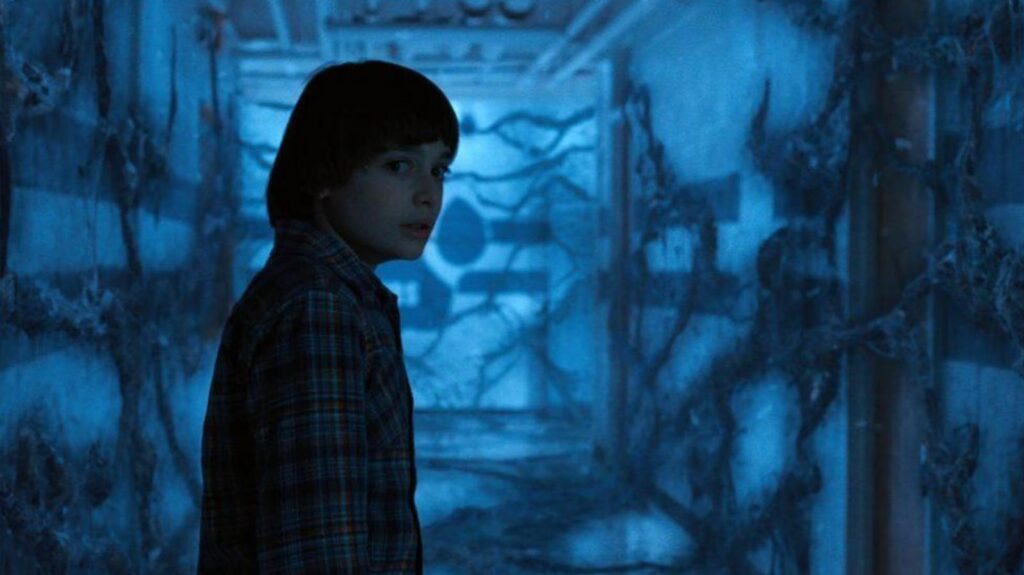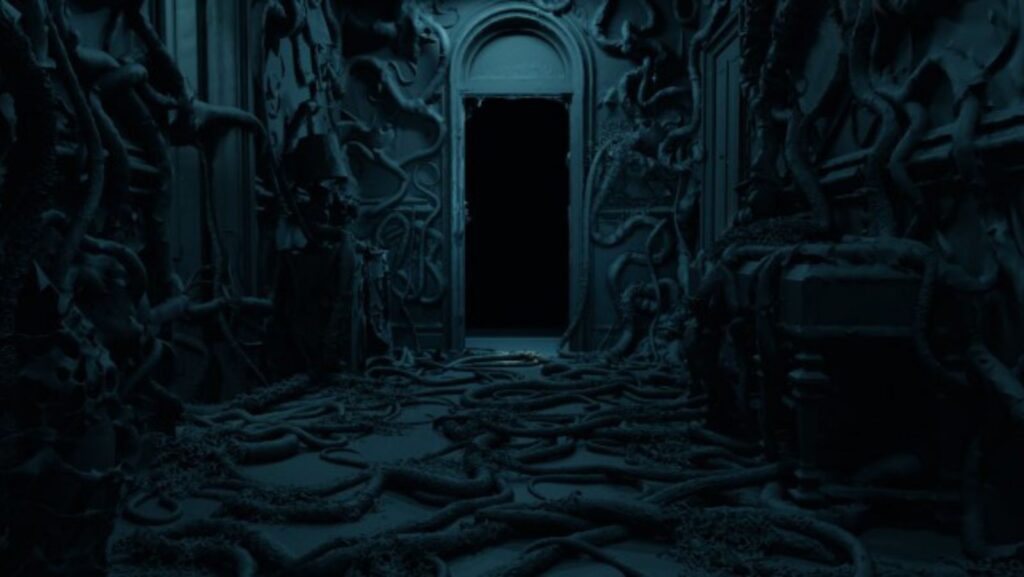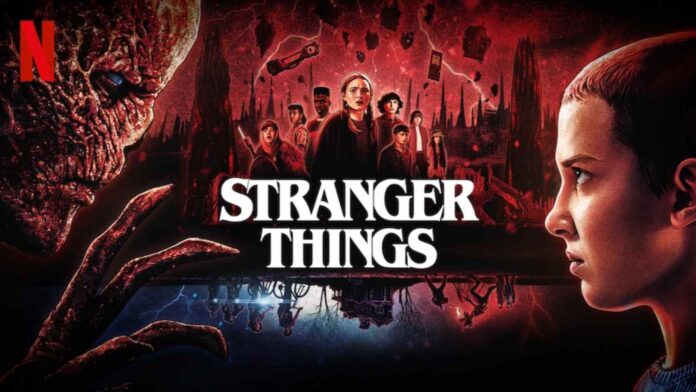If you’ve watched ‘Stranger Things‘, you know that the Upside Down is more than just a creepy alternate dimension full of demogorgons and electrical storms. While its supernatural horrors drive the show’s plot, there’s more to it than just science fiction thrills.
The Upside Down is also packed with symbolic depth. It’s a metaphor for mental health struggles, especially depression. From the eerie, decaying landscapes to the never-ending sense of danger and isolation, the Upside Down serves as a powerful representation of the hidden battles people face with mental illness.
Will Byers’s Experience In Upside Down Is A Reflection Of His Depression

The clearest connection between the Upside Down and mental illness lies in Will Byers’ journey. Throughout season 1, we see him trapped in this hellish landscape, alone and scared.
It can be interpreted as a reflection of someone dealing with depression. Will, played by Noah Schnapp, often retreats into confined spaces and is visibly overwhelmed by fear, much like how people with depression can feel suffocated by their emotions.
Related: ‘Stranger Things’ Star Maya Hawke Says Show’s Finale Is “Basically 8 Movies” Wrapped Into One Season
Take a moment to think about how Will copes. He clings to the song ‘Should I Stay or Should I Go‘, a happy memory of time spent with his brother. In real life, people often latch onto comforting memories or routines to help them through tough times.
It’s a small moment of light in an otherwise overwhelming dark world. His struggle to communicate with the outside world, like when he uses Christmas lights to connect with his mom, Joyce, played by Winona Ryder, can also be seen as a metaphor for how hard it can be to reach out when you’re trapped in your own mind.
The Upside Down As A Manifestation Of Depression

Now, this theory goes deeper. The Demogorgon, in the Upside Down, was the big bad of the first season. It can actually be seen as a representation of Will’s own depression.
If we think about it closely, it stalks him in the shadows, lashes out at those trying to help, and grows in strength the longer Will is stuck in the Upside Down. It’s a lot like depression, isn’t it? It creeps in slowly and affects not just the person suffering from it but those around them as well.
In season 2, things get even darker. Will begins to describe the Mind Flayer as a “feeling.” He breaks down in tears, saying it’s the same feeling he had when he was trapped in the Upside Down. This moment hits hard. That feeling of being consumed by something bigger and more powerful than yourself.
In Case You Missed It: Will Kali Return For The Final Season Of ‘Stranger Things’?
Will’s friends and family band together to help pull him out of his dark place — just like how support from loved ones is often crucial for someone dealing with mental health issues. As viewers, we’re reminded that it often takes a group effort to tackle these challenges.
At the end of season 2, when Will’s family and friends are finally able to pull him back from the clutches of the Mind Flayer, it’s not just about defeating a monster. It’s about overcoming the overwhelming force of depression. Joyce and Hopper (played by David Harbour), who serve as Will’s emotional anchors, play a critical role in his recovery, showing how important it is to have that external support.
‘Stranger Things‘ is currently streaming on Netflix, with the fifth and final season set for release next year.





